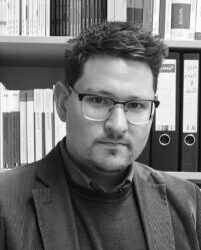On 21 June 2020, the annual DIID summer retreat took place, followed by a summer party. DIID members, practice partners and invited guests gathered at Schloss Mickeln in Düsseldorf from 12.30 p.m. to discuss current research projects on the internet and democracy. A workshop with André Bächstiger (report) had already taken place in the morning.
The programme began with a brief report on the past and future activities of the DIID by spokesperson Prof. Dr Marc Ziegele and coordinator Dr Dennis Frieß. In the subsequent block of “(potential) new members”, Junior Professor Dr Justus Vasel introduced himself with a presentation on the “Digital Transformation of European Democracy”. Based on a critical reflection of the much-emphasised narrative of a European democratic deficit, Vasel outlined ideas on how digital offerings can strengthen the general acceptance of the EU.
The second block was dedicated to the role of AI in public participation processes. Prof. Dr Detlef Sack and Emilia Blank from the University of Wuppertal presented the BMBF-funded KIP project, which is part of the DIID-coordinated funding cluster “Perspectives of Open Science in a Digitalised Democracy” and deals with the question of how AI can be used profitably in citizens’ councils. David Mas from our cooperation partner make.org picked up on the theme of the previous presentation and introduced generative AI applications that are able to automatically summarise online discussions in real time.
The last thematic block focussed on the current discourse on deliberative democratic theory. Prof Dr Gerhard Vowe kicked off the discussion with a lecture on Habermas’ new structural change in the public sphere. He outlined three lessons for political communication research, which led to a lively discussion. Equally lively was the concluding lecture by Prof Dr André Bächtiger. In the lecture “Deliberative Democracy Quo Vadis (in Diabolical Times)?”, Bächtiger presented some ideas from his latest book “Deliberative Democracy for Diabolical Times” (in collaboration with John Dryzek) and explored the question of how current challenges can be met deliberatively.
Afterwards, all participants were invited to continue the discussions over a get-together barbecue. We would like to thank all the speakers for their insightful input and all those present for their participation and interesting discussions.
Ansprechpartner
Dr. Dennis Frieß (Coordinator)
Board, Communication Studies, DIID-Team

Dr. Dennis Frieß is coordinator of the DIID. Since May 2019, he was coordinator of the NRW Research College Online Participation. From 2014 to 2019, he was a research assistant at the Chair of Communication and Media Studies III at HHU-Düsseldorf and a staff member at DIID. He studied Social Sciences, Law and Communication Science at the University of Erfurt (B.A.) and Political Communication in Düsseldorf (M.A.). His doctoral thesis focused on the analysis of deliberative online publics. His research focuses on political (online) communication, online deliberation, and online participation.
At the DIID, he is particularly interested in online-supported deliberation processes and the democracy-relevant expectations associated with online participation offerings.


